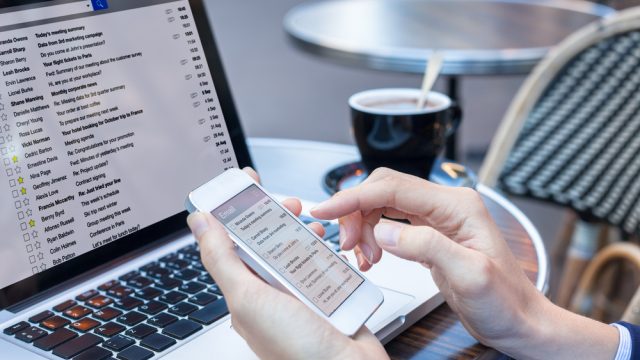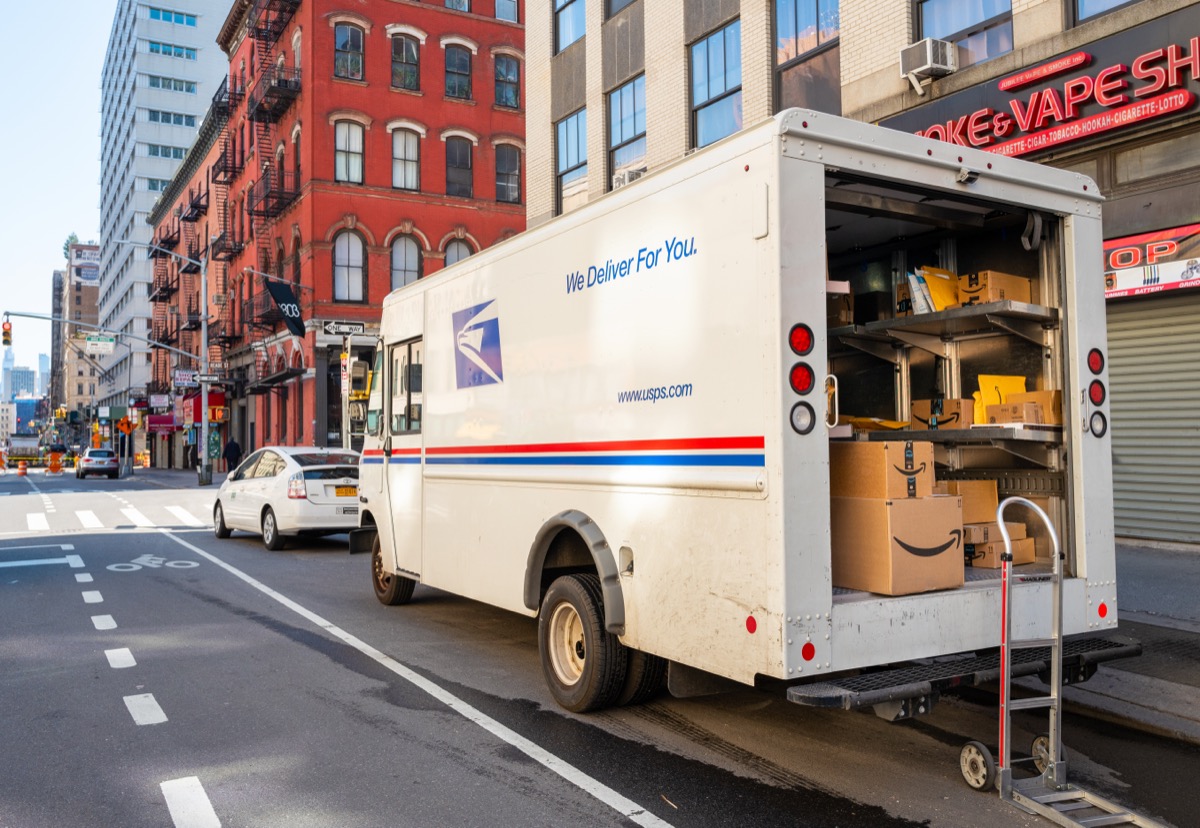If You Get This Email Addressed to You, Report It Immediately, Experts Warn

Marketing messages. Social media alerts. Coupons. Newsletters you never get around to reading. If you’re like most people, your inbox is full of a wide variety of emails at any given moment. Even amidst all of the pointless communications and SPAM, your eye will occasionally catch sight of a message from a friend, colleague, or someone you trust reaching out. But unfortunately, scammers are becoming more sophisticated with their efforts to steal your personal information or funds. And now, experts are warning that if you get one type of email, you should report it immediately—even if it’s addressed to you. Read on to see which message is a major red flag.
READ THIS NEXT: If You Get This in the Mail, Throw It Out Immediately, Police Warn.
Experts and officials have recently warned about scams related to package deliveries.

For as much digital correspondence that gets sent these days, there’s still a good chance you receive your fair share of packages in the mail as well. The e-commerce explosion brought on by the COVID-19 pandemic has shifted the way many people shop and do business to this day. Unfortunately, despite being a huge convenience, the change has also allowed scammers to exploit some of the vulnerabilities in the system.
On May 31, Snopes reported that a text messaging scam was making the rounds in which fraudsters claimed to be from the USPS. In most cases, fraudsters send a notification to targets’ phones warning that there’s an unspecified problem and that a package “cannot be delivered” before directing them to pay a resolution fee through a legitimate-looking website, the fact-checking site reports.
Officials warn that any unsolicited messages from the agency should be treated as highly suspicious. “USPS will not send customers text messages or emails without a customer first requesting the service with a tracking number, and it will not contain a link,” the U.S. Postal Inspection Service (USPIS) warns. “So, if you did not initiate the tracking request for a specific package directly from USPS and it contains a link: don’t click the link!” But unfortunately, this is far from the only type of scam involving your parcels.
Another email scam has resurfaced that involves a message cleverly addressed to you.

According to a report from the Daily Express in the U.K., the latest version of a similar ploy involves scammers using convincing-looking emails to suggest that a package they’ve ordered is out from delivery by global logistics company DHL. In many cases, the messages are addressed directly to the intended target, including using their first or last name to gain their trust.
The emails then provide a tracking number before requesting an address confirmation. However, if a recipient clicks through the provided link, they are then taken to a phony website mimicking DHL’s official page that asks for a small administrative fee to reschedule delivery. Anyone who enters the requested credit card information is actually feeding it directly to scammers, who can use it to commit identity theft, make fraudulent purchases, or even empty bank accounts, Daily Express reports.
RELATED: For more up-to-date information, sign up for our daily newsletter.
Here’s how you can spot one of the scam emails.

But even though the latest scam may be sophisticated enough to use your personal details, it falls short in other areas that make it relatively easy to spot. Most notably, the email header and website include a version of the DHL logo that has been changed to read “BHL” instead. But perhaps even more apparent is that the email contains a photo of a truck from rival delivery company United Parcel Service (UPS) bearing the company’s trademark brown and yellow logo, Daily Express reports.
You can avoid falling victim to a scam by following a few simple steps.

Similar to the USPIS, DHL warns that it will never reach out to customers with a request for administrative fees. Instead, the company writes on its website that it “only collects money due for official DHL-related shipping expenses,” and requests any who received one of these messages to report it to its dedicated Anti-Abuse Mailbox at [email protected].
If you’re ever concerned you’ve received a suspicious email, experts recommend double-checking the sender’s address and hovering your mouse over any link without clicking it to see if it’s sending you to a fake page. Any blatant spelling, capitalization, or grammar mistakes should also be a major red flag, as scammers can sometimes use this to bypass security filters built into your inbox. And if you’re still unsure of an email’s authenticity, experts suggest looking up the company’s customer service phone number independently and calling them directly to answer any questions.
READ THIS NEXT: If You Get This Call From the Police, Hang Up Immediately, Officials Warn.